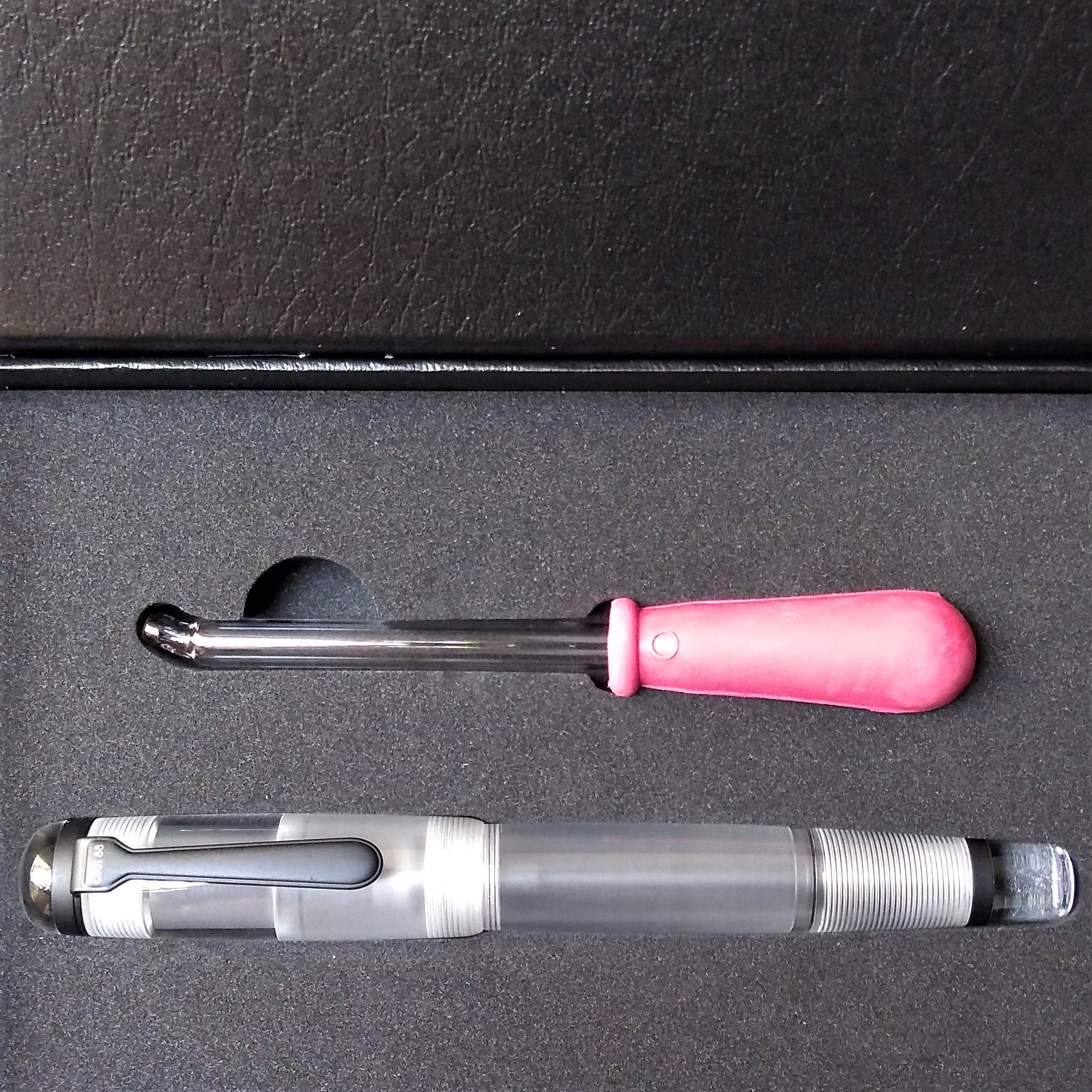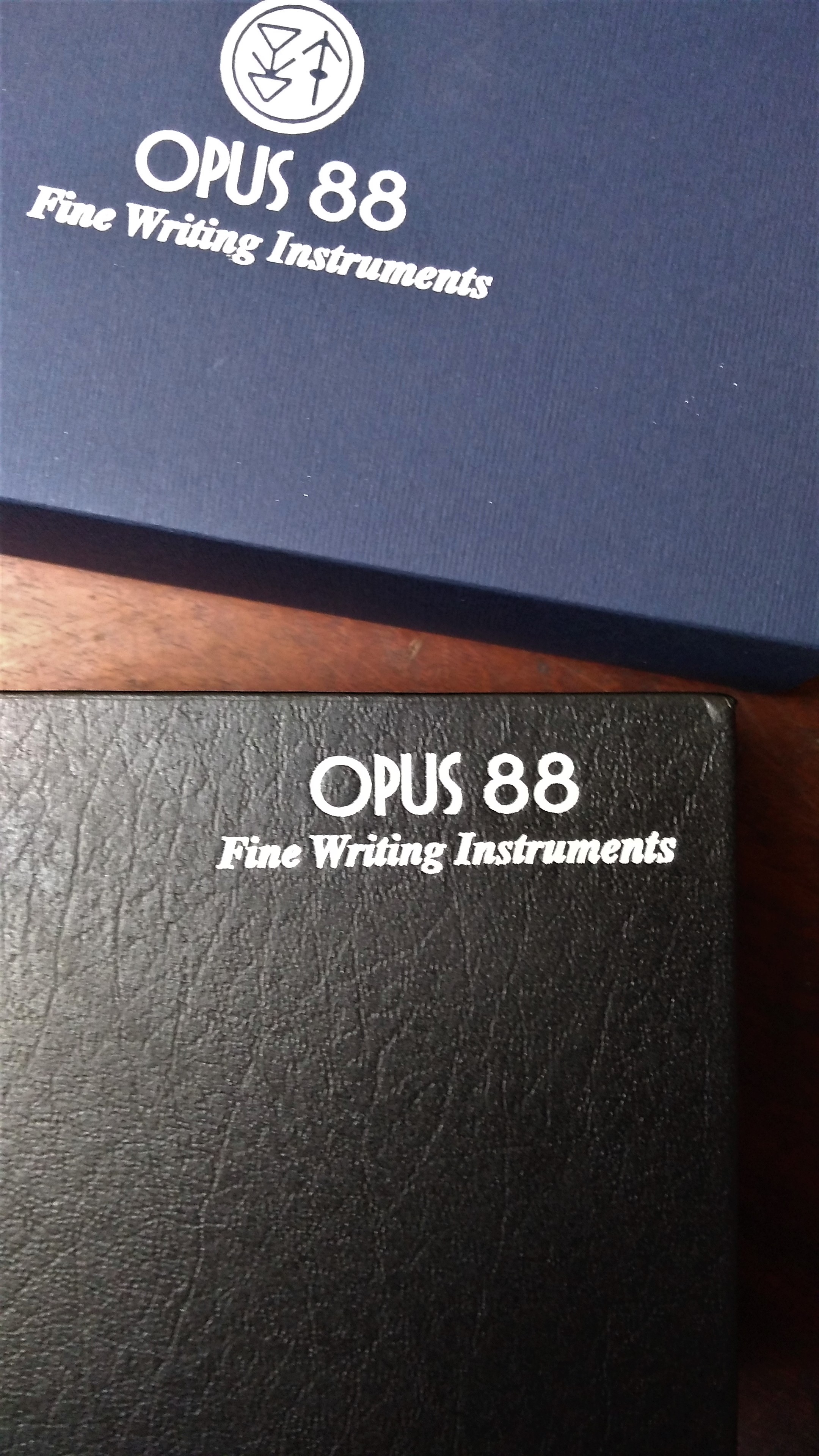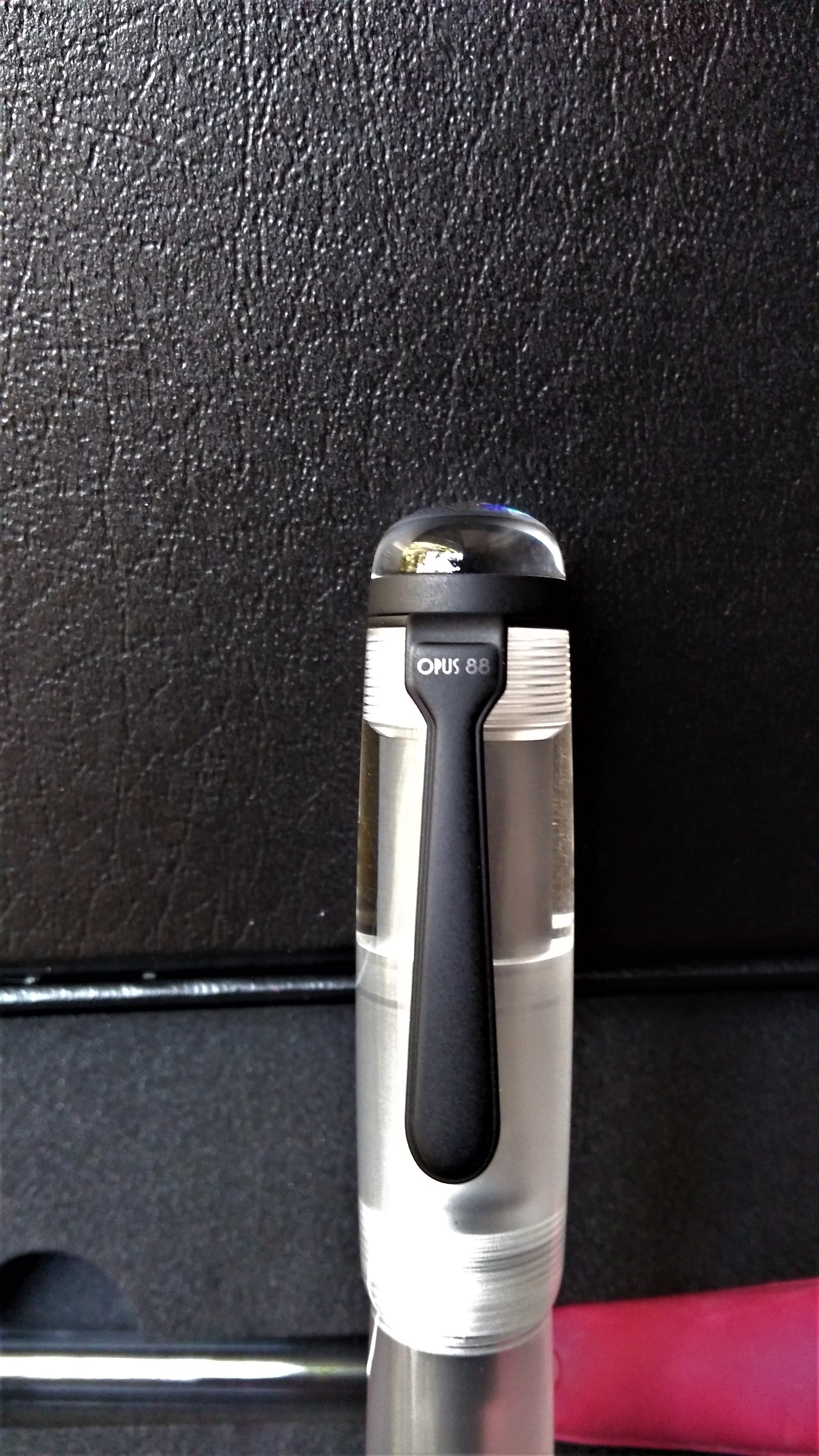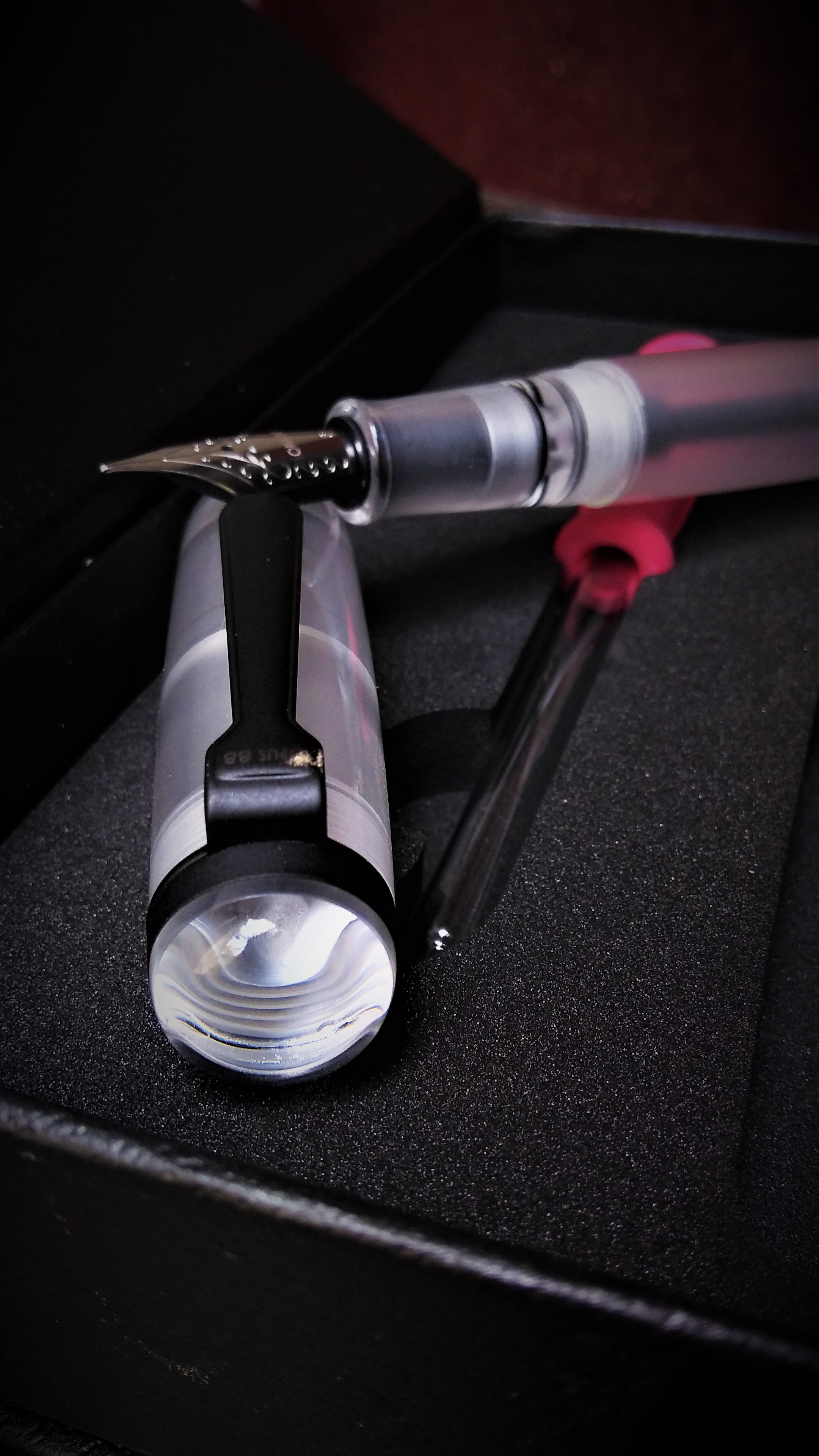
Opus 88 re-imagines the Rubáiyát of Omar Khayyám
A “Rubáiyát”, in Persian poetry, is a verse form consisting of four-line stanzas. The term was familiarised to the world by Edward Fitz Gerald whose translation of the quatrains (rubāʿiyāt) attributed to the astronomer-poet of Persia Omar Khayyam (1048-1131) bore the title Rubáiyát of Omar Khayyám and is revered to date by connoisseurs from around the world.

Opus 88 calling the clear demonstrator “Omar” does not come as a surprise then, as it too has all the four characteristic lines that makes it a rubāʿiyāt fit forthe appreciation of aficionados. And this is in addition to the Omar coming from the House of Opus 88, which is fast becoming a name to reckon with as a manufacturer of quality writing instruments in the world, steadily offering one winner after the other. Obsessed with fountain pens as I am, I am tempted to call the Omar a poem – something I am sure that you will empathise with, once you look and feel the pen.
The first line of the four-line epic called the Opus 88 Omar is that, the pen is a Clear demonstrator – built after a fashion that the “here and now” generation finds appealing. That it is a resin eyedropper filler is a kind of a counterbalance, one that appeals to us ancient mariners, the pen effectively bridging the gap between the past and the future. The Opus holds an insane amount of ink in its belly (upward of 3.6 ml) and is thus destined to write like, forever. The glass eyedropper that comes packed in the box is another thoughtful little touch that has “we care” written all over it, making the ink filling operation as seamlessly integrated and hassle free as possible.

The second line makes the Opus 88 Omar, the rubāʿiyāt if you may such a time-less beauty, is the piston filled shut off system that has been incorporated, which makes it virtually spill proof. The piston knob at the end of the barrel can be effectively used to increase or decrease the airflow to the nib allowing the ink to flow as mellifluously as the words of Omar Khayyám. And to make things even better, there is a tiny o-ring as added precaution, another one of those little touches that make Opus 88 products stand out in the crowd.
The third line is off course the Jowo nib which neither needs introduction, nor certificates. They are no-nonsense in an effective kind of way, they do the job assigned to them without burp, dryness or fatigue and are now the equivalent of regulation, mission-critical army supply. From the moment the pen is inked, the steel nibs (available in EF, F, M, B and Stub) start writing and have a steady flow that is neither too wet, nor too dry. Point is, like most nibs, they too may need a little tweaking to lead into your idiosyncrasies, but I guess that is more of an exception than the rule.

The fourth line, however, is the one that delivers the coup de grace, the knockout punch. The Opus 88 Omar is big and bulky: certainly not the weapon that is meant for either the dainty or the faint at heart. The length of the body of the Opus 88 Omar is a whopping 136.6 mm – the overall length (closed) being 149.5 mm, while, when posted, it is sheer NBA class going all the way to 180.4 mm. The weight of the Omar is 34.0 grams, the body alone weighing about 18 grams. The diameter of the pen at the grip section is 10.8 mm – the cap with clip being a healthy 21.0 mm. Petite, the Omar certainly is not!
Yes, there are fountain pen lovers who swear by the heavy and the bulky pen – going so far as to say the heavier the pen, the more comfortable it is to write with, in the longer run. They are quick on the draw and point out that once a particular pen blends into one’s grip, it leads to virtually fatigue free writing, especially to those who use their pens regularly, that too, to write miles. I am tempted to agree, as I too have this weakness for fountain pens that tend towards being well-fed. However, on the other extreme, I have had people who love their fountain pens no less, rubbish the whole argument in favour of the big and the bulky by calling it purely a phallic fallacy, explaining that the girth actually plays on some subconscious yearning that seeks refuge in the fountain pen, doing nothing to enhance the pleasure of writing, causing discomfiture and irritation, if nothing.

I guess I will not get drawn into the argument – both sides being vociferous in their denunciation of the other and rest my case by just stating that I love the Opus 88 Omar and the sound of its nib scratching on paper is sheer poetry to my ears. The shape, the size, the feel and the way the Omar rests on my fingers – its size notwithstanding – is, ah, like a … rubāʿiyāt?
For More stories on Opus 88 see:
For More information about Opus 88 visit: http://www.jingi.com.tw/about.php

I want to buy FP INKS OF VARIOUS COLORS. PLS WHATS ME 8240279600
Very well written as usual.